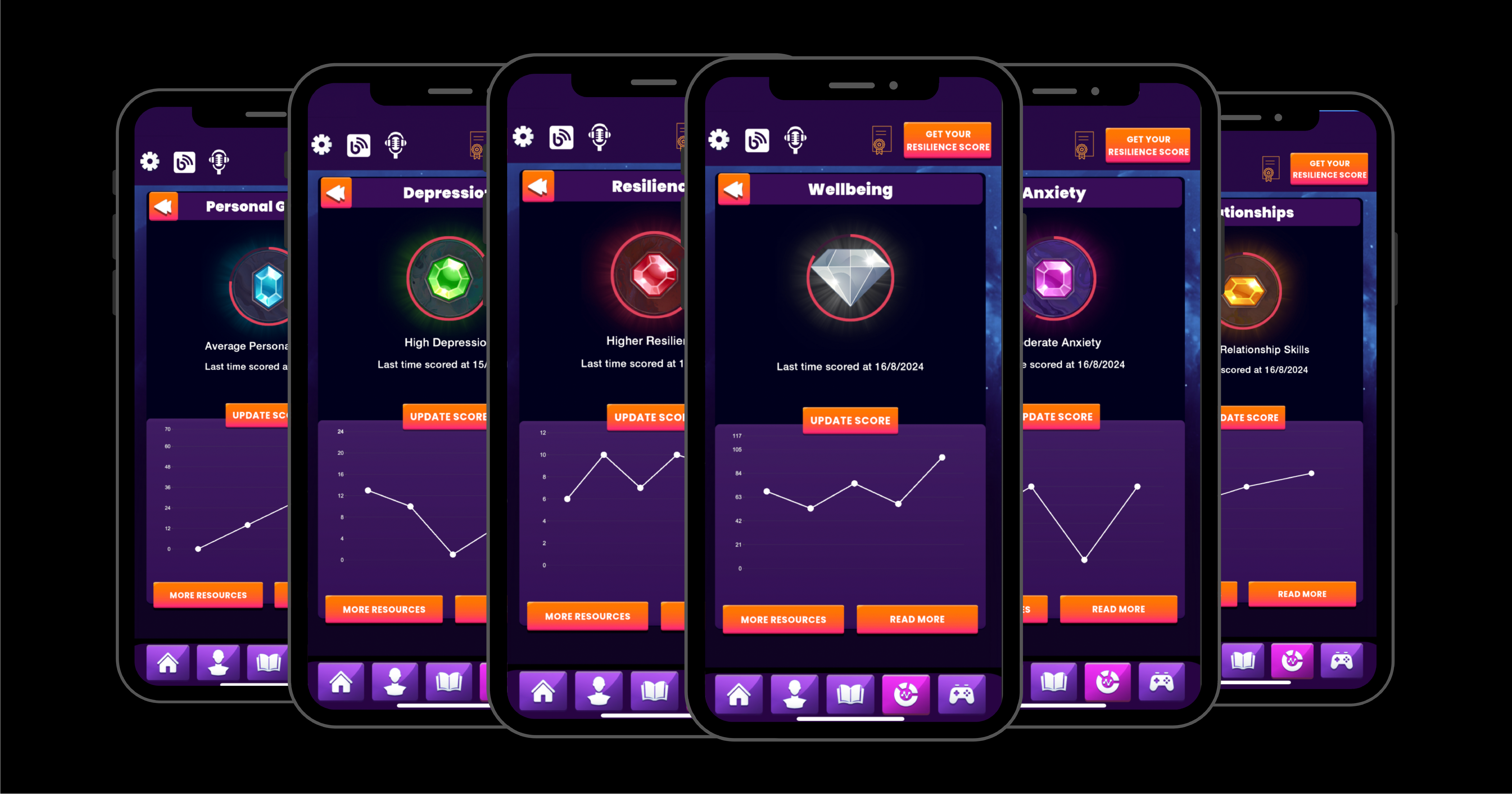The Rise of Gamified Mental Health Apps in the UK and What to Look For
Why Mental Health Apps are Emerging
In recent years, we’ve seen a surge in gamified mental health apps, particularly in the UK. Combining the engaging elements of gaming with evidence-based mental health support, these apps have opened a new, innovative avenue for people seeking mental wellbeing solutions. But with this rapid growth comes an important question: how do you know which app is truly beneficial?
What are Gamified Mental Health Apps?
Gamified mental health apps use game mechanics such as points, rewards, and interactive challenges to engage users in improving their mental health. The aim is to make mental wellbeing more approachable and enjoyable, especially for younger generations who are used to the interactive nature of games. In a world where attention spans are shorter and mental health needs are growing, gamified apps offer an engaging solution.
Why Gamified Mental Health Apps Are Gaining Popularity
- Accessibility: These apps are readily available on smartphones, allowing users to engage with mental health support at any time, from anywhere.
- Engagement: By incorporating game elements, these apps make the often difficult process of managing mental health feel less intimidating and more interactive.
- Positive Reinforcement: Many apps use reward systems to encourage users to keep coming back, fostering consistency in practising mental health techniques.
- A Safe Space for Growth: Gamified apps can offer a safe and non-judgemental environment where users can explore their feelings and learn coping strategies without fear of stigma.
What to Look For in a Gamified Mental Health App
With so many apps available, it’s essential to know which ones are not just engaging but also effective. Here are a few key features to consider:
1. Clinically Proven Effectiveness
When it comes to mental health, trust is key. Many apps on the market make big claims, but few have clinical proof to back them up. Look for apps that have undergone rigorous testing or have been developed in collaboration with mental health professionals.
For instance, eQuoo—the app we’ve developed at PsycApps—is one of the 2% of apps that are clinically proven gamified mental health tools. The app has been shown to improve emotional wellbeing and resilience, giving users the confidence that it’s more than just a feel-good game.
2. Addiction-Proof Design
Gamification is designed to be engaging, but it’s important that this engagement doesn’t cross the line into addiction. Mental health apps should promote healthy habits, not create dependencies. Look for apps that are transparent about how they use gamification and encourage balanced usage.
In contrast to many gaming apps that use endless scrolling and reward loops to keep you hooked, responsible mental health apps ensure that they support rather than exploit your wellbeing.
3. Personalisation and Adaptability
A good gamified mental health app should feel tailored to your individual needs. Whether it’s offering different types of exercises, tracking your progress, or adjusting content based on your mood, personalisation is crucial. Apps like Happify are well known for adapting to users’ needs and offering personalised solutions for stress, anxiety, and depression.
4. Scientific Foundations
Always look for apps grounded in cognitive-behavioural therapy (CBT), positive psychology, or other evidence-based techniques. While gamified elements add fun, it’s essential that the underlying mental health strategies are scientifically supported.
Noteworthy Gamified Mental Health Apps on the Market
- eQuoo
Clinically proven to boost levels of resilience and decrease anxiety and depression in just 5 weeks by combining the power of psychology, gamification, and interactive storytelling. - Happify
This app uses science-backed activities and games to improve your mood and reduce stress. It’s designed to help you build resilience through interactive exercises. Find out more here: Happify. - SuperBetter
Created by game designer Jane McGonigal, SuperBetter uses a quest-based system to help users tackle anxiety, depression, and stress. It turns your mental health journey into an epic adventure. Learn more about SuperBetter here. - Moodfit
Moodfit offers a suite of tools to help users track their mood, develop good habits, and build resilience through various mental health exercises. The app uses data to tailor its recommendations, making it a personalised experience. Discover more on Moodfit.
The Future of Gamified Mental Health Apps
With the increasing demand for accessible mental health solutions, we’re likely to see even more apps leveraging gamification to engage users. However, as more apps enter the market, it’s essential to prioritise quality over entertainment. Clinically proven, scientifically grounded apps that encourage balanced, healthy usage are the ones that will truly stand the test of time.
Gamified mental health apps can be a powerful tool in promoting emotional wellbeing—especially for younger generations. But it’s important to choose apps that offer more than just a fun interface. Clinically proven, addiction-proof apps stand out as they blend evidence-based strategies with engaging gamified elements.
When choosing a gamified mental health app, always check for clinical testing, personalisation options, and a healthy approach to gamification. With the right app, you can level up your mental health in a way that’s fun, engaging, and, most importantly—effective.


